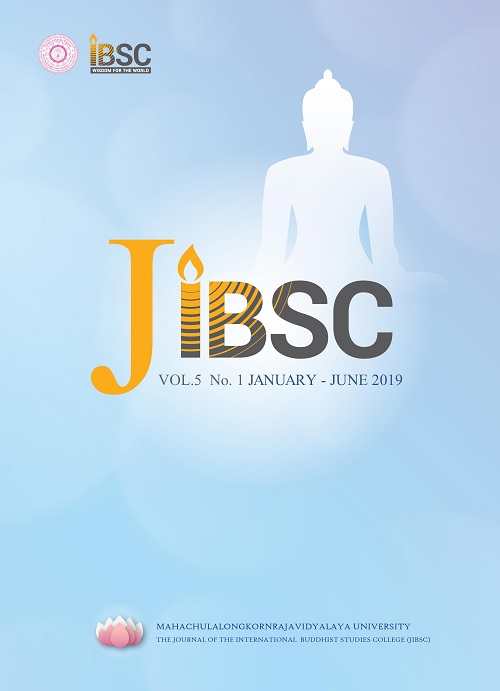Buddhist Approach to Human Society Development: Economic Ethics for a Ruler
Main Article Content
Abstract
Buddhist already contributed for human development and social welfare form over two thousand fi ve hundred years ago to present time. Especially, Buddhist teaching alleviated not only spiritual but also physical well-beings for human societies and all over the world. In Buddhism, material well-being is a necessary condition to support the cultivation of the mind. This implies that insuffi cient material well-being, or the problems associated with poverty, can cause suffering that may impede the practice of mental development. From the Buddhist perspective, the main objective of economic activities is to alleviate suffering. A righteous ruler rules the state in the name of justice, subordinate only to the dharma. The relationship between the ruler and dharma, or righteousness, is important in order to maintain proper social order, attain personal liberation, and forms a basis for the duties of the state. In Buddhism, the concept of “wealth” is related to ethic. Poverty is regarded as the problem in economic life. Therefore, the main objective of this article is to study Buddhist contribution to human society for economic ethics of a ruler in the Buddha Teachings, specially this study quote from CakkavatthiSihanadasutta, Kutadantasutta, Aggannasutta.
Article Details
The Journal of TCI is licensed under a Creative Commons Attribution-NonCommercial-NoDerivatives 4.0 International (CC BY-NC-ND 4.0) licence unless otherwise stated. Please read our Policies page for more information on Open Access, copyright and permissions.


